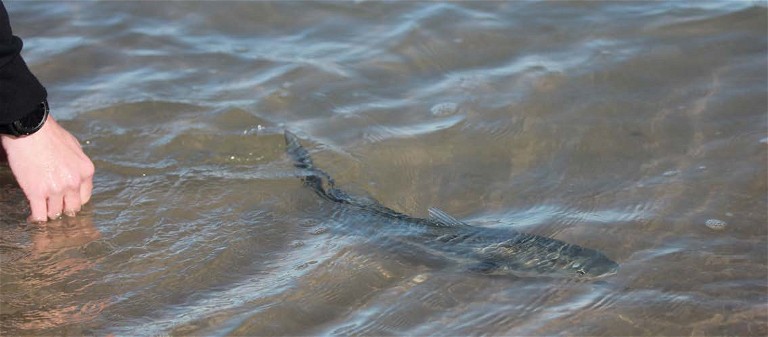A JOURNEY FROM KAHAWAI TO KINGFISH

More than 300 articles advocating for recreational fishing have been shared through NZ Fishing News since the Minister of Fisheries made poor decisions regarding the management of kahawai and proposed privatising recreational fishing rights in mid-2000.
Photo: Nick Jones.
New Zealand is surrounded by over 15,000km of coastline, with more than 65% of us living within 5km of the ocean. So for us Kiwis, our coastal marine environment is a significant part of our lives and wellbeing.
It’s important that we maintain these precious natural resources for our future generations. That’s why a committed group of Kiwis has, for decades, fought for more fish in the water so we all continue to have access to a healthy and abundant fishery.
From restoring abundance of our precious kahawai, to advocating for the removal of destructive industrial fishing methods, NZ Fishing News has been there throughout this bumpy journey.
But don’t be fooled, the fight is not over. As long as officials continue supporting a failing quota management system and ineffective fisheries management tools, LegaSea will still be in action.
As NZ Fishing News moves into a new and exciting space, it’s a great time for us to reflect on how far we have come and what is yet to come.
More than 300 articles have been shared through the magazine since the Minister of Fisheries proposed privatising recreational fishing rights in mid- 2000. First it was option4, then the New Zealand Sport Fishing Council, and now LegaSea. All this effort was dedicated to improving the management of our fish populations and marine environment, for everyone’s benefit.
So when did this all begin?
Our humble kahawai were some of the original victims of excessive greed. Having a surface schooling behaviour, the “people’s fish” never stood a chance against spotter planes and purse seiners who caught thousands of schools of kahawai in the 1980s.
The kahawai stock was in a serious state of decline – around 80% of the original, estimated population biomass was gone by 1996, exported as low-value protein, mostly for pet food and crayfish bait.
The Minister of Fisheries made a poor attempt to rebuild kahawai populations in 2004, by introducing the species into the quota management system with the existing commercial catch limits. This meant the fishery was unable to rebuild to an abundant level within a reasonable timeframe.
The system was biased, handing the majority of future catching rights to those who had inflicted the most damage on the fishery. Our interests, in having abundant kahawai inshore and available in places we traditionally fished, were totally ignored.
Appalled by the Minister’s decision, the New Zealand Sport Fishing Council and recreational fishers took the Minister to the High Court and won. The case continued to the Court of Appeal and eventually the Supreme Court in 2009.
In the subsequent Courtordered review, the Minister chose to manage the largest North Island kahawai stock at more than 50% of the estimated original stock size, allowing abundance to be rebuilt so everyone could benefit.
Now, more than a decade later, most of our inshore fish populations are still managed below 50% of their estimated, unfished level. This is not good enough. Depleted populations make fish stocks more susceptible to collapse, especially when combined with warming waters, land runoff, and pollution.
Our neighbours across the ditch are taking meaningful steps to increase abundance and maintain balance in the ecosystem, by deliberately managing key fish stocks at much higher levels, leaving more fish in the water. So what is limiting us from doing the same?
It is not acceptable to wait until fish stocks collapse before officials decide to adopt better management practices. Without meaningful change we will continue to get the same result – fewer fish in the ocean, and not enough kaimoana on our dinner plates.
We have made some progress in reforming the management of kahawai, west coast snapper and kingfish, with their stock levels showing signs of recovery. However, we still have a long way to go.
LegaSea and a raft of recreational fishers are grateful to the NZ Fishing News team for their ongoing dedication to raising public awareness of issues that matter to all Kiwis. Kia kaha, team.